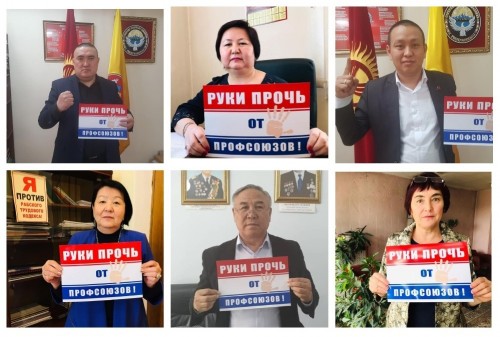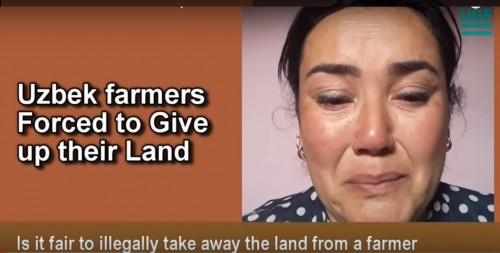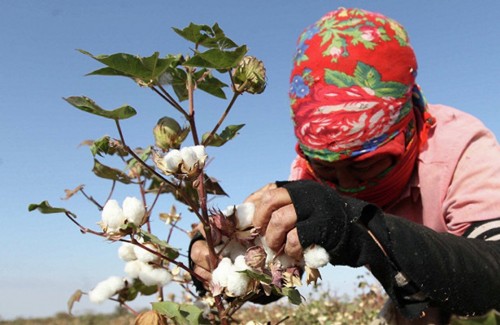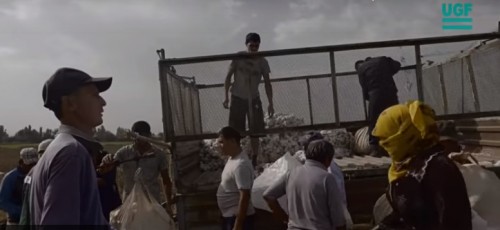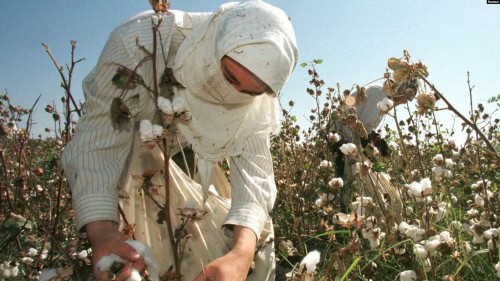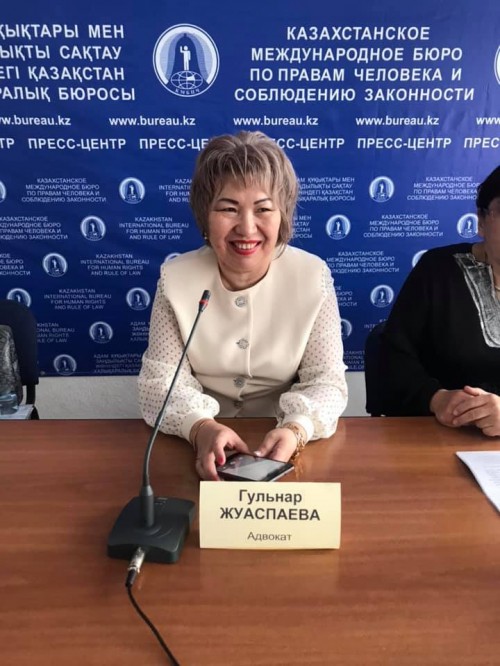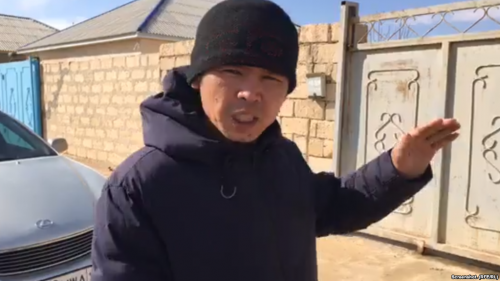Countries
Solidarity campaigns
13 August 2024
Georgia: Support striking workers at Evolution Gaming
5 June 2023
Georgia: Justice for Wolt couriers
10 May 2023
Belarus: Trade union activity is not extremism!
2 November 2019
Kazakhstan: Trade unionist Erlan Baltabay imprisoned - again!
19 November 2018
Kazakhstan: Stop repression and physical attacks on leaders of independent unions; hands off Larisa Kharkova, Erlan Baltabai and Dmitriy Senyavskiy
18 April 2018
MALOKHAT STILL NEEDS YOUR HELP
News
30 April, 2019 / uzbekistan
In Karakalpakstan, a farmer was pulled from a noose. Shortly before, his land had been taken away.
A video was published on the Ozodlik Radio website showing how doctors provided first aid to the farmer who was unconscious in an ambulance. The voices of the farmer’s relatives can be heard explaining to the paramedics that the man had drunk vinegar before trying to hang himself. The farmer’s father, explaining the reasons for his son’s suicide attempt, says that “the hokim subjected his son to unbearable suffering.”
30 April, 2019 / kyrgyzstan
Kyrgyz unions oppose anti-union law
IndustriALL Global Union affiliates in Kyrgyzstan are demanding the withdrawal of a draft law on trade unions, which significantly undermines independent trade unions.
26 April, 2019 / uzbekistan
In Namangan, hundreds of hectares sown with vegetables were destroyed to increase cotton production
Radio Ozodlik spoke with farmers from the Pap district of the Namangan region, who reported that the local authorities had ordered the destruction of their crop of vegetables and melons, in order to free the land for cotton planting. According to the farmers, several of them who had spent all their money on planting vegetables on their land was left without a means of income.
20 April, 2019 / uzbekistan
Uzbek Farmers Forced to Give up their Land
zbek farmers Nargiza Mamajonova and Zuhra Azizova have complained to the Ozodlik radio that the state has confiscated their land. Both women said that they had rented abandoned land and invested all their money to establish successful farms. Today they are left with nothing.
05 April, 2019 / uzbekistan
UGF Report: Despite Progress, Systemic Forced Labor Persists in Uzbekistan’s 2018 Cotton Harvest Cotton Campaign Urges Further Reform
The report is based on 70 in-depth interviews, including with officials, 300 field visits, and monitoring of more than 100 farms. It documents both the significant progress made by the Uzbek government, as well as ongoing forced labor due to structural factors that remain largely in place. Driven by a commitment to reform at the highest levels of government, there is significant transition underway which is reflected in some encouraging signs of progress, but the 2018 harvest showcased the enormous challenges remaining in Uzbekistan’s efforts to end forced labor.
04 April, 2019 / uzbekistan
04 April, 2019 / uzbekistan
ILO Cites Dramatic Drop in Uzbek Use of Forced Labor
The International Labor Organization is reporting a dramatic 48 percent reduction last year in the use of forced and child labor in Uzbekistan, which for decades has been listed among the world's worst offenders.
03 April, 2019 / kazakhstan
Kazakhstan: Judge’s complaint alarms legal profession
A lawyer in Kazakhstan known for taking on politically sensitive cases is fighting off a judicial complaint that could lead to her disbarment.Gulnara Zhuaspayeva told a press conference in Almaty on April 1 that she believes this is an attempt to intimidate her into desisting from her work.
27 March, 2019 / kazakhstan
Kazakh Activist In Restive Town Arrested, Charged With Hooliganism
A court in Kazakhstan's southwestern town of Zhanaozen on March 26 ordered a leader of recent protests staged by jobless young people placed in pre-trial arrest for two months.
17 March, 2019 / turkmenistan


